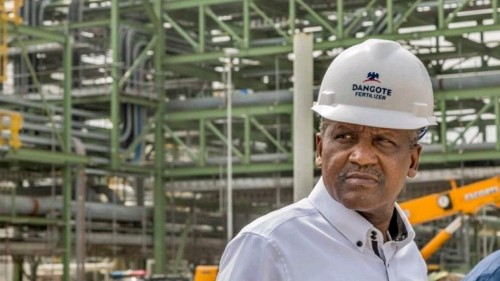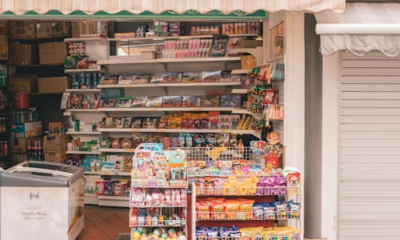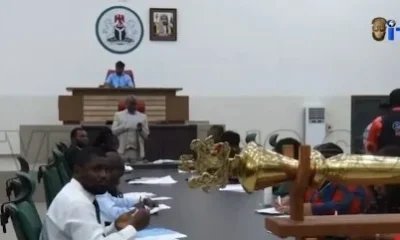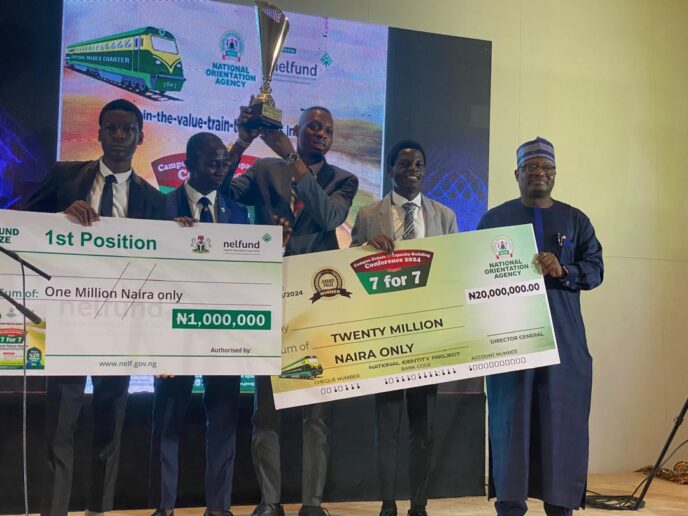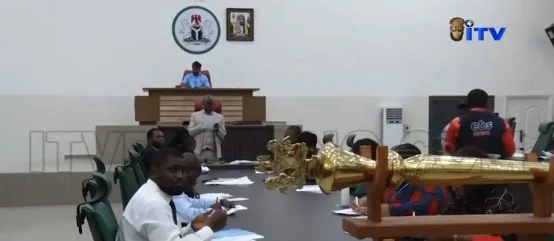Petroleum marketers have expressed the fear that Dangote’s petrol price may be higher than expected as product from the refinery is expected to hit the local market in two to three weeks.
They spoke against the backdrop of the 650,000-capacity refinery’s failed attempt to get feedstock locally from the international oil companies.
Dangote Refinery has continued to import crude oil from the United States and other countries at a higher cost. This development has reportedly made its diesel and aviation fuel not very attractive to some local marketers due to price reasons.
The marketers, who spoke on Monday, raised concerns that the cost of importing crude oil would impact the cost of production, a development that may eventually hike the ex-depot price of the Dangote PMS.
The Chairman of the Dangote Group, Aliko Dangote, has said PMS from the refinery will hit the Nigerian market by the third week of July.
Marketers and Nigerians have been hopeful that the Dangote refinery will cut down the price of PMS which jumped from around N200/litre to over N600/litre after the removal of fuel subsidies by President Bola Tinubu on May 29, 2023.
However, there are fears among stakeholders that Dangote’s lack of access to local crude oil may dash Nigerians’ hope of getting cheaper PMS.
Speaking in an interview with (with The Punch), the National Vice President of the Independent Petroleum Marketers Association of Nigeria, Hammed Fashola, said the association was afraid that crude imports would jerk up the price of Dangote petrol.
According to Fashola, the refusal of IOCs to sell crude oil to Dangote will be a big challenge to the $20bn refinery, even as he acknowledged that the IOCs also have other business commitments.
“The non-supply of crude is a big challenge for Dangote. You know Dangote cried out too. The international oil companies too will have their reasons; you know they have their commitments too. It’s not like they will start feeding Dangote only. People should understand that. I think Dangote should consider that. I know this prompted Dangote to go outside the soil of Nigeria to seek crude oil. You know when he keeps bringing crude oil from the United States, that is another cost. That is another problem we are scared of because it will still boil down to the high cost of petrol, unlike where he can source the crude locally in Nigeria,” Fashola said.
To resolve this, the IPMAN leader asked the Federal Government to assist Dangote with the supply of crude oil. This, he said, would solve the problems Nigerians face with fuel availability and affordability.
“I will advise that the government should assist Dangote in the supply of crude oil. If Dangote can get an adequate supply of crude oil locally, I think the whole problem will be solved somehow. I don’t think there will be any need for anybody to go and bring in petrol again, especially if Dangote is selling at a reasonable price,” he added.
Fashola, however, enjoined Dangote not to monopolise the petroleum if he eventually got the support of the government, saying the refinery must sell PMS at a reasonable price.
“Dangote too should not see it as an advantage to start monopolising the market by raising fuel prices. Dangote has to come with a clean mind by selling at a reasonable price to the public, otherwise, people will still go and start importing if Dangote’s price is high. But if the price is normal and anybody who brings in product from abroad knows that he would run at a loss, nobody will venture into it. Dangote should be sincere, and the government should support him,” he stated.
On pricing, Fashola expressed the hope that the refinery would close the price gap between major and independent marketers, including the Nigerian National Petroleum Company Limited Retail outlets. He also opined that there would be a marginal price reduction, subject to local crude availability.
“I don’t want to start predicting, but we envisage a situation where the price gap would be closed somehow, unlike what is obtainable now when the NNPC sells at N568 in Lagos and independent marketers sell at N650, N700 or more. I believe that the gap will be closed. Even if there is a price differential, it won’t be as wide as it is now.
“We also expect that there may be a little bit of a reduction in the price, but I believe that the price will be unified somehow. I don’t want to mention figures, I like to say something accurate. For now, I cannot mention any price, but I know that there may be a little reduction and there may be a little bit of uniformity in the price. It won’t be like what we have presently,” he noted.
While saying the independent marketers are ready to buy fuel from Dangote in the next two to three weeks, the IPMAN boss called on the management of Dangote refinery to finalise partnership discussions with the association.
Earlier reports had it that the National President of IPMAN, Abubakar Maigandi, last week accused Dangote of refusing to partner with the association, which he said would help the company in the market.
Speaking on Monday, Fashola asked the company to work with the independent marketers as a body, being the owners of most of the filling stations in Nigeria.
“Yes, we are ready. We are all looking forward to importing fuel from Dangote this month. But at the same time, we want to use this opportunity to call on the management of Dangote to finalise discussions with IPMAN as a body. That will be more beneficial to both parties. Since all these days, they have not finalised the partnership discussions with us.
“We have some of our members who have already registered with Dangote, but we believe that going there as an association will be better for us and Dangote himself because we are the market. We are the ones buying from both MEMAN, DAPPMAN and others. So, it is an advantage, maybe they are not seeing it, but I think by now they have seen it; they should take advantage of the opportunity so that they will just have the whole market in their pocket,” he submitted.
Meanwhile, an official of the Dangote refinery told our correspondent that the President of the Dangote Group, Aliko Dangote, decided to let Nigerians know what he was facing in dealing with the IOCs, whom he had accused of frustrating his plans to make the refinery work.
The official, who did not want to be mentioned because he was not permitted to speak on the matter, said the businessman was aware that Nigerians might accuse him of hiking the price of fuel if they were not aware of how the IOCs were making it difficult for the refinery access crude locally with some crude producers reportedly offering the product as high as $6 above the market price.
To avoid this, the official said the refinery company decided to raise the alarm to inform Nigerians of the happenings in the sector since no businessman can sell below the cost price.
“If Dangote gets crude oil locally, there wouldn’t be any issue. You know Dangote is importing with dollars. So, there is no way Dangote will sell below the cost price. But these traders are importing dirty fuels from Russia at a cheaper price.
“We keep importing crude from the US because the IOCs refuse to sell to us. That’s the problem. If IOCs could be selling to us, we wouldn’t have any crisis; we would be selling at a price everybody would be happy with. Look at what the dollar is saying now; if we are buying crude at a dollar that exchanges for N1,484, how much do you want us to sell? But if we are getting it in Nigeria, the cost will be reduced, and it will be cheaper.
“If the Federal Government allows us to buy in Nigeria, it will be cheaper. What we need to do is just to refine and sell. But in this case, we have to import from the US, so it’s very expensive. Some people are just playing politics with this thing to frustrate the refinery,” the Dangote Group official stated.
Dangote refinery had recently crashed the price of diesel in the country from around N1,600 per litre to N1,000. The price of a litre of diesel currently sells around N1,200/litre.
Dangote recently said Nigeria would no longer import any fuel by the time he begins the sale of PMS in the second or third week of July.
Meanwhile, the Secretary of the Depot and Petroleum Products Marketers Association of Nigeria, Olufemi Adewole, said the price of Dangote petrol would be determined by how he gets his crude oil, saying the association would not want to speculate the price.
“It is not for us to speculate. The crude he gets at the time he gets it is what determines the price. We are not going to speculate on what we have not received,” Adewole stated.
Asked if the NNPC price would not affect that of Dangote, the DAPPMAN secretary retorted, “Whoever we get the product from will determine the price. Has Dangote revealed how much he will sell his PMS? Let’s wait until Dangote releases his price. For as long as Dangote has not released any price, we may watch and wait. We buy diesel from him; we buy aviation fuel from him. Those are the ones that are on right now. Anything on PMS, until then we will cross the bridge. Whatever price he gives us, we will buy and sell to Nigerians.”
Like IPMAN, Adewole also declared that the depot owners were ready to lift PMS from the refinery.
“Of course, if Dangote starts PMS loading tomorrow, we will buy from him. We have recently stated that we are ready and willing to cooperate with everybody in the downstream sector. Dangote is the one we will be buying from, forget the fact that we made a press release last week. It is the only refinery that is available for us for now and we are going to buy from them,” he disclosed.
On whether his members have registered to get PMS supply from Dangote, he said, “Has Dangote started giving out the PMS? We are picking ATK from him, we are picking diesel; marketers are picking from him, so there is no problem about that. Once he starts PMS, we fall in line too.”
The Vice President of Oil and Gas at Dangote Industries Limited, Devakumar Edwin, had last week accused international oil companies in the country of plotting to frustrate the survival of the new Dangote refinery.
Edwin said the IOCs were deliberately and willfully frustrating the refinery’s efforts to buy local crude by hiking the cost above the market price by $6, thereby forcing the refinery to import crude from countries as far as the US, with its attendant high costs.
Edwin stated, “The IOCs are deliberately and willfully frustrating our efforts to buy the local crude.
“It seems that the IOCs’ objective is to ensure that our petroleum refinery fails. It is either they are deliberately asking for a ridiculous and humongous premium or they simply state that crude is not available.
“At some point, we paid $6 over and above the market price. This has forced us to reduce our output as well as import crude from countries as far as the US, increasing our cost of production.
“It appears that the objective of the IOCs is to ensure that Nigeria remains a country, which exports crude oil and imports refined petroleum products. They are keen on exporting the raw materials to their home countries, creating employment and wealth for their countries, adding to their Gross Domestic Product (GDP), and dumping the expensive refined products into Nigeria, thus making us to be dependent on imported products.”
Meanwhile, the Dangote oil refinery is increasing diesel exports to West Africa, taking market share from European refiners, according to traders and shipping data, Reuters reported.
Reuters reports that the refinery was producing a lower grade of gasoil than expected as it awaits the restart of units needed to produce cleaner fuels, prompting the plant to seek buyers in neighbouring markets.
Exports of gas oil from the refinery hit nearly 100,000 barrels per day in May, nearly doubling April’s levels, Reuters reported quoting data from Kepler.
The bulk of the exports, it said, went to other West African countries, but one cargo was shipped to Spain.
Preliminary June gasoil volumes have fallen sharply, though overall oil product exports including fuel oil, naphtha and jet fuel remained relatively elevated at 225,000 bpd, the data showed.
Credit: The Punch
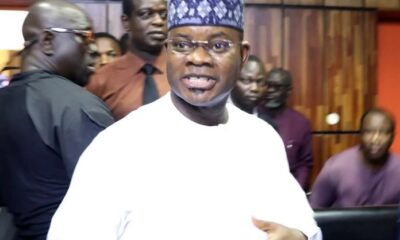
 BIG STORY5 days ago
BIG STORY5 days ago
 BIG STORY4 days ago
BIG STORY4 days ago
 BIG STORY2 days ago
BIG STORY2 days ago
 BIG STORY2 days ago
BIG STORY2 days ago
 BIG STORY3 days ago
BIG STORY3 days ago
 BIG STORY5 days ago
BIG STORY5 days ago
 BIG STORY1 day ago
BIG STORY1 day ago
 BIG STORY5 days ago
BIG STORY5 days ago




